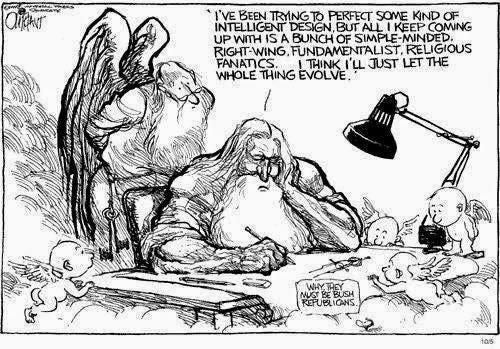How to find God §1-9
An indefinite and possibly undefinable amount of easy to follow steps
§1 The order of operations is arbitrary.
This is not an argument. It is not a formula. Every point relates to every other point. It is not a line, but a picture.
§2 Approach everything about religion as if you were learning a foreign language
If you are monolingual, start by learning a second language. Not fluently, just the absolute basics of learning a foreign grammar should do it. The experience of saying a sentence to a native speaker of the language. Then, approach everything as if you were learning a foreign language.
Example: You do not understand what the word “God” means. You might think you know what it means: A bearded man in the sky, a giant humanoid of some kind, a Zeus figure that is inherently impotent and comical. A picture of some kind springs to mind when you see, hear, or use the word “God”. Some cartoon from a newspaper you saw when you were 5 years old. Illustrations from a “children’s bible”.
Your unarticulated process regarding faith and divinity is something like this: your first exposure to the word “GOD” was a cartoon drawing in a newspaper satire cartoon, or even worse yet, a tv cartoon. You’ve never really thought about it, but this picture is what you assume “Christian” people you meet, or hear about, or see on television, or see or read about on the internet, believe in. Because a) you’ve never really thought about it, b) because you think in pictures and c) because you don’t have a better picture of it.
Simply don’t assume that. Or, phrased positively: Approach the word as if you didn’t know what it meant. When you approach someone “who believes in God”, try to figure out what they mean when they say God. Ideally, some person you like, respect or find yourself drawn to for their charisma or something.
§3 Revelation: Non-linear Causation
Revelation is non-linear Causation.
Revelation is “all of it, all at once”.
Linear Causation is “one thing at a time”.
Revelation is non-linear Causation.
§3 Antichrist
You do not know what “Christianity” is, you have only ever been exposed to it’s anti-thesis. The little cartoon figure from before. That’s not in the bible - that’s not what people in the middle ages believed in. That’s what a smug, miserable newspaper cartoonist in the 1990-2010’s believed Christianity was, because he was only ever exposed to the antithesis, and assumed it was the thesis.
This is the reason for the French cartoonists causing so much upset with the Muslim world. For many it revealed a terrible truth to them, that they were unwilling to process: that the God they believed in was in fact a cartoon version. Simplistic, overly “humanised”, animalised, “naturalised”, materialist - modernist. The cartoons were too good, too precise.
That does not mean “their religion is wrong”. I believe Islam to be the vehicle to carry tradition through the kali yuga. What I mean is that the particular men were not genuinely religious, and believed in a cartoon version of real religion. This happens a lot. Don’t worry about it for now.
Growing up and being exposed to religion - even if you are within a formally religious community, even if your parents are formally religious, Muslim or Christian or whatever, and they “genuinely” just want to raise you in the faith - odds are, they only ever familiarised themselves with an anti-thesis version of religion. A modernist version of it. Protestantism, Anglicanism, “nice pleasant, unoffensively, basically boomer/hippie values of lassaiz faire indifference morality”. This is all itself an antithesis. Much of modernity’s tricks are conflating the critique with the subject. Because, in a nutshell, if you don’t know the thesis, then you can never reach synthesis. It’s breaking the cognitive process before it starts, handicapping you.
This but unironically.
You’re gonna have to learn some history too, sorry. For reasons discussed elsewhere, you have not been initiated into your environment and your own history. I can’t do that for you and I’m not going to write a cute little summation here, “basically the reformation is A B and C”, because you can’t. You gotta hit the books/or, ideally, talk to your grandparents and your parents. Maybe not about the reformation, they probably wont know the first thing about that. Nothing directly related to religion or whatever, just, you have to learn history. It’s important for it’s own sake. There’s no direct causal link, it is not a linear process but a gradually expanding holistic picture (see §1). you start with hearing about how life was on the farm in 1950, then slowly work your way up to the reformation. And beyond.
Everything you have ever thought about religion and religious life has been the antithesis to a thesis you are blind to, because you are stuck inside certain limitations - the on this blog much discussed “modernist worldview”. Scientism, rationalism. Whatever you want to call it. I personally want to call it scientism, because I link it to the collective failure of the worlds supposed intelligentsia to comprehend Wittgenstein’s tractatus logico-philosophicus. Popper, scientism, verifiability, “doing away with metaphysics”, it’s all the direct product of a lack of humility; key individuals simply being unable to admit, “I don’t get it” , and history for the past 100 years have been one long string of “emperor’s new clothes” compounding errors and fear of losing face, based on people pretending they understand Tractatus. Bertrand Russel is one of the greatest villains the human race has ever produced.
When I say “you do not know what Christianity is” I mean it literally. You do not know what “Christ” means. You have only ever known the antichrist.
§4 Metaphysics and the validity of evil
Different religions are different manifestations, by way of language, of a set of metaphysical constants, which for lack of a better term we can call, prime religion. this is the stuff of Traditionalism (TM). Metaphysics are real. It’s not just weird language games, and it’s not this vague psychological bullshit of comparative religion and Campbell “universal narrative” bullshit, as much bullshit as “universal grammar”.
There are metaphysical constants. Evil is a big one. Others include, logos, christ, the heavens. I’m no authority on this at all, I’m running on intuition and dreams. In this moment I am jungian, etc. Read evola I guess. Read Evolist’s blog.
Accept the validity of the word “Evil”, as a meaningful concept. Do you understand what this word means? is it merely a perspectivism, a relative property? Is it merely an evolutionary survival mechanism, “touching a hot stove is evil, because it hurts, owie!”
Say the word “evil”. Is this what it means? Is this what YOU mean when you say it? You went to an overcrowded public school so odds are you’ve met at least 1½ sociopaths in your life. Think about him or her. Someone you hate. Say “[(s)he] is Evil”. Is what you mean by that, that they hurt your feelings, relatively? That they are a hot stove?
People hurt people every day for no good reason. Some of them are sadists - most of them aren’t even that. People murder and rape and steal and lie and cheat every single day and they sleep like babies. Worse yet, they play little social power games and feud over nothing, manipulate and provoke and generally cause petty little misery everywhere they go. You can remember a person in your life, you’re thinking about someone when I say this, someone who is knowingly causing suffering in you or others.
You are making excuses for them, in an effort to spare yourself having to make a moral judgement. To spare yourself having to live in a moral universe. The price you pay is being miserable. What you buy is freedom from obligation. All moral intuition is a call to action, seeing a flaw in the world and knowing how to make it better.
Odds are you have been victimized by someone. It is a matter of respect for their existential autonomy, to make moral judgements about it. To refuse to condemn them is not something you do out of your bleeding humanitarian heart: you do it out of pride (they don’t know any better! = I’m smarter), out of laziness, and out of cowardice.
Moral relativism is a refusal of the call, and in a Nietzschean sense, a refusal of the self. To follow your moral intuition is an act of freedom and self-actualisation, by nietzcheanly imposing your will onto the world.
§5 Try going to church as a joke, like, ironically, haha just to see like haha like haha like what if we went to church and did all the rituals ahaha
§6 German literalism and bluntness
Different religions, so called, are direct “products” of different languages. I think there are a set of metaphysical and physical constants that produce “worldly religion”, such as, a moral impulse (christ impulse: irrational, absurd), and that they manifest in various forms depending on, primarily, the structure of the language of a people.
They manifest to resolve different linguistic and practical blind spots, different senses of lacking; certain things can and cannot be expressed in certain languages, and the shape of “religion” (which is the tool with which to transcend “language”, and enter into direct contact with metaphysics), manifest in different forms, to “cover” different “holes”, so to speak, to build a bridge to the world of metaphysics.
As an example of what I mean: Protestantism and the German reformation. To put it racistly: German is a blunt and extremely literal language. “Deutsch ist eine sehr wörtliche sprache”, “wörtliche” - “word-like”.
Germans are extremely literal people. Protestantism is a blunt, vulgar Germanic literalism, a deconstruction of the vague, abstract Mediterranean and middle eastern religion. Protestantism is autistic Christianity. Essentially, an antithesis, an autistic literalism, a deconstruction, of Italian and Latin impracticality and dogma. As the German-speaking population was exposed to the Latin church, a cognitive strain grew on the linguistic miss-match over a couple of hundred years, until it exploded in violence to resolve itself.
I think that today, even the catholic church is to some degree “protestant” - simply for the fact of having been exposed to Protestantism, you are forever changed by it. You cannot unsee it - or:
The only way out is through. There has not yet been a full dialectical movement. The closest thing to it is Kierkegaard, at least in the European tradition. This is what mean when I say, “We must account for death and create a new interpretation of Forgiveness”.
From what I can tell the orthodox church seems all right, but the trouble is, you would ruin it by involving yourself with it, because you are infected with Germanic autistic literalism.
You have to build your own church.
§ 7 my personal crazy theory
Certain peoples are by biological and historical/geographical coincidence “naturally” or “organically” closer to Christ than others. Germanics have strong christ impulse, samurai-asians, scandinavians. They, for whatever reason, spontaneously self-organise more christ-like, and require less formal instruction.
Lebanese, mediteraneans have a comparatively poor christ impulse, and so the Word, the Christ appeared in the Mediterranean, because, in Jesus’ own words: who needs it more, the sinner or the saint? Who deserves to dine with him more, the whore or the nobles? The Manifestation happened in Jerusalem, because they were the furthest from Christ, not because they were the closest.
§8 God does not have a psychology
To argue over God (the Father) as if he was a “person” is to miss the forest for the trees. Language limits us to painting pictures, but map/terrain, forest/trees, you know the drill. That’s the whole point of Jesus, the manifestation.
§9 Relieving Social Anxiety and Tension with A Joke
You might think it has to be this whole “big thing” - you might imagine you need to “find Jesus” or something. You might have this picture in your head that you are going to have to have some kind of epileptic episode and in a fit of spasms meet Jesus in your dreams and then be completely deluded and insane for the rest of your life. This is not the case. It could work - but you don’t have to do all that. This is the little German inside you saying that.
You can just think about it all for a bit, and think “hmm yeah ok I’m beginning to see what all this logos stuff that weirdo e-michael jones was talking about is all about”, or something like that. It can just be that. It can be really boring, like homework. It can be just like learning a new language, and suddenly, getting a joke for the first time.
It’s difficult to talk about. It’s difficult to be precise about. Wovon man nicht sprechen kann, darüber muss man schweigen.












I'm sorry for being late to posting but my day jobs are just kind of kicking my ass
Hooting , howling , applauding.